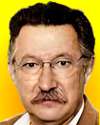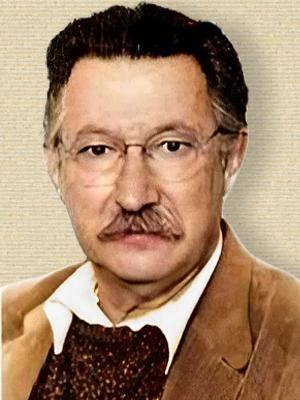 (source)
(source)
|
Joesph Weizenbaum
(8 Jan 1923 - 5 Mar 2008)
German engineer and computer scientist who is remembered for devising the computer program called Eliza, which mimicked a conversation with a psychologist.
|
Science Quotes by Joesph Weizenbaum (7 quotes)
Man is not a machine, ... although man most certainly processes information, he does not necessarily process it in the way computers do. Computers and men are not species of the same genus. .... No other organism, and certainly no computer, can be made to confront genuine human problems in human terms. ... However much intelligence computers may attain, now or in the future, theirs must always be an intelligence alien to genuine human problems and concerns.
— Joesph Weizenbaum
Computer Power and Human Reason: From Judgment to Calculation, (1976) 203 and 223. Also excerpted in Ronald Chrisley (ed.), Artificial Intelligence: Critical Concepts (2000), Vol. 3, 313 and 321. Note that the second ellipsis spans 8 pages.
Now what we have to fear is that inherently human problems—for example, social and political problems—will increasingly be turned over to computers for solutions. And because computers cannot, in principle, ask value laden questions. The most important questions will never be asked.
— Joesph Weizenbaum
From interview with Marion Long, 'The Turncoat of the Computer Revolution', New Age Journal (1985), II, No. 5, 49-51, as quoted in Lester W. Milbrath, Envisioning a Sustainable Society: Learning Our Way Out (1989), 257.
The computer—logical, linear, rule-governed—encourages a certain kind of thought process. Call it scientific rationality. The introduction of the computer has driven man to an ever more highly rationalist view of his society, and an ever more mechanistic view of himself.
— Joesph Weizenbaum
From interview with Marion Long, 'The Turncoat of the Computer Revolution', New Age Journal (1985), II, No. 5, 49-51, as quoted in Lester W. Milbrath, Envisioning a Sustainable Society: Learning Our Way Out (1989), 257.
The dependence on computers is merely the most recent—and the most extreme—example of how man relies on technology in order to escape the burden of acting as an independent agent. It helps him avoid the task of giving meaning to his life, of deciding and pursuing what is truly valuable.
— Joesph Weizenbaum
From interview with New Age journal (1985), as quoted in obituary (2008) on M.I.T. News website.
The problems facing schools and educators everywhere are personal, political, financial and spiritual. These will not be solved merely by putting more terminals and video screens into the classroom.
— Joesph Weizenbaum
From interview with Marion Long, 'The Turncoat of the Computer Revolution', New Age Journal (Dec 1985), II, No. 5, 49, as quoted in John Beynon and Hugh Mackay (eds.), Technological Literacy and the Curriculum (1992), 185.
We are now, as a society, close to the point of trusting only modern science to give reliable knowledge of the world. I think this is terribly dangerous.
— Joesph Weizenbaum
From interview with Marion Long, 'The Turncoat of the Computer Revolution', New Age Journal (1985), II, No. 5, 49-51, as quoted in Lester W. Milbrath, Envisioning a Sustainable Society: Learning Our Way Out (1989), 257.
What’s needed more than anything else, I believe, is an energetic program of technological detoxification. We must admit that we are intoxicated with our science and technology and that we tire deeply committed to a Faustian bargain that is rapidly killing us spiritually and may eventually kill us all physically.
— Joesph Weizenbaum
From interview with Marion Long, 'The Turncoat of the Computer Revolution', New Age Journal (1985), II, No. 5, 49-51, as quoted in Lester W. Milbrath, Envisioning a Sustainable Society: Learning Our Way Out (1989), 258.
See also:
- 8 Jan - short biography, births, deaths and events on date of Weizenbaum's birth.
- Computer Power and Human Reason: From Judgment to Calculation, by Joseph Weizenbaum. - book suggestion.

 In science it often happens that scientists say, 'You know that's a really good argument; my position is mistaken,' and then they would actually change their minds and you never hear that old view from them again. They really do it. It doesn't happen as often as it should, because scientists are human and change is sometimes painful. But it happens every day. I cannot recall the last time something like that happened in politics or religion.
(1987) --
In science it often happens that scientists say, 'You know that's a really good argument; my position is mistaken,' and then they would actually change their minds and you never hear that old view from them again. They really do it. It doesn't happen as often as it should, because scientists are human and change is sometimes painful. But it happens every day. I cannot recall the last time something like that happened in politics or religion.
(1987) -- 


